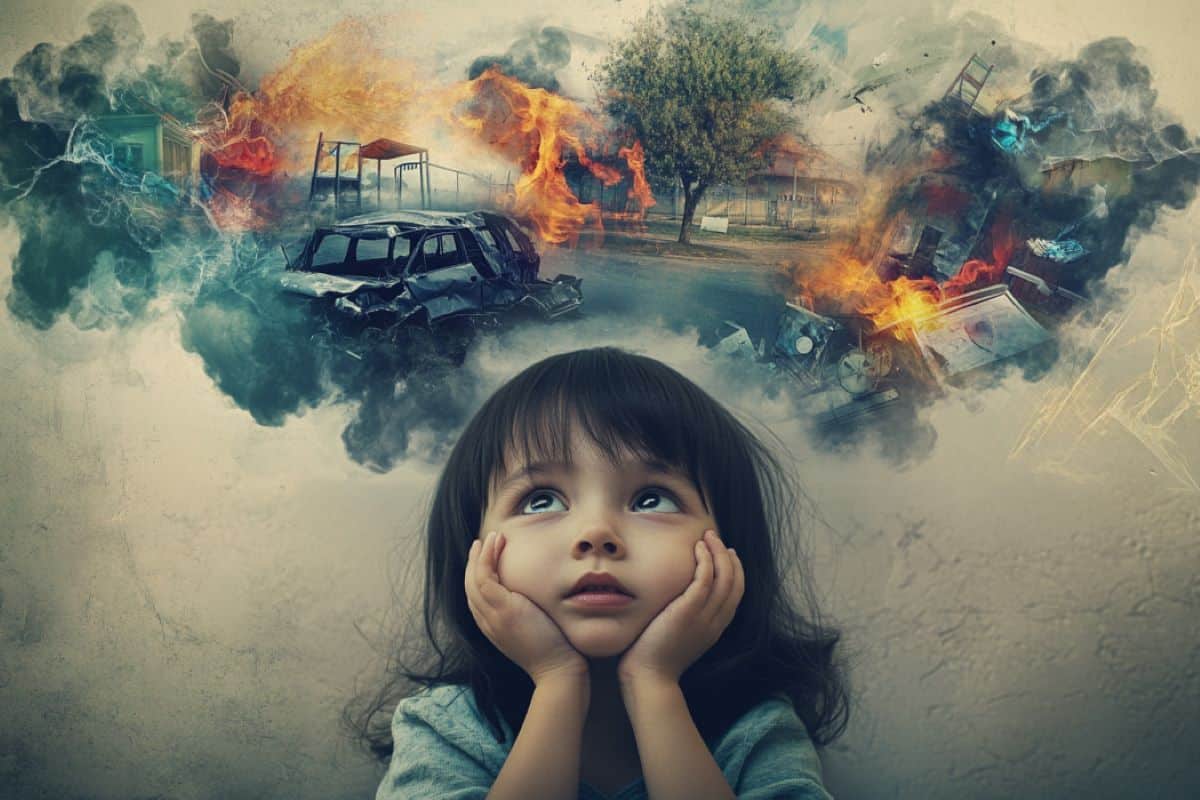Wellness Exchange: Health Discussions
Child's Mindset, Not Trauma Severity, Shapes Mental Health
(upbeat music) - Welcome to Listen2, this is Ted. The news was published on Friday, October 11th. Joining us today are Eric and Kate. Let's dive into our topic. Today we're discussing a groundbreaking study on child trauma recovery. Let's start with the key findings. Eric, what's your take on this research? - Well, Ted, this study is really shaking things up. It turns out that how a kid processes a traumatic event in their mind is the real game changer when it comes to their mental health. It's not about how bad the event actually was, but how the child sees it and remembers it. Pretty wild, right? - That's an oversimplification if I've ever heard one. We can't just ignore the actual trauma itself. Are you serious? - Hold on, Kate. I'm not suggesting we ignore the event. The research is clear. Cognitive factors like how kids see themselves after the trauma and how they remember it are more crucial than how objectively severe the event was. It's about perception, not just reality. - But that's just bonkers. Are you honestly trying to say that a kid stubbing their toe could be as traumatizing as, I don't know? - Kate, you're missing the point. The study isn't saying all traumas are equal. It's saying that two kids could experience the same event and have very different outcomes based on how they process it mentally. Kids with more negative self-perceptions or distorted memories were at higher risk for long-term issues, regardless of the event's severity. - Interesting perspective. Kate, how do you interpret these findings in terms of treatment approaches? - Well, if it's all just in their heads, why don't we just tell kids to think happy thoughts and skip off into the sunset? Problem solved, right? No need for any actual help or support. - That's a dangerously simplistic view, Kate. The research actually points to the effectiveness of trauma-focused cognitive behavioral therapy. - Oh, so now we're pushing expensive therapy on every child who scrapes their knee. Great, let's just bankrupt parents while we're at it. - Come on, Kate, that's not what I'm saying at all. We're talking about tailored approaches for children who've experienced genuine trauma based on their individual cognitive responses. It's about providing the right kind of help to those who really need it. - And who gets to decide what counts as genuine trauma? This sounds like a slippery slope to me. - Let's take a step back and put this in historical context. Can you think of any similar shifts in understanding trauma, particularly in children? - Absolutely, Ted. This reminds me of the paradigm shift in understanding shell shock after World War I. Initially, doctors thought it was a physical condition caused by being near explosions. But over time, they realized it was a psychological response, not tied to the physical severity of combat exposure. This led to the development of early forms of trauma therapy. - That's completely different. We're talking about children, not soldiers. You can't possibly compare a kid's playground. - The principle is the same, Kate. It's about the shift from external to internal factors. Just as with shell shock, we're now recognizing that the internal processing of an event is crucial, not just its objective severity. It's about understanding the mind's role in trauma, whether it's a soldier or a child. - Well, what about the hysteria diagnosis of the 19th century? Aren't we just pathologizing normal reactions again? Next thing you know, we'll be calling every temper tantrum a traumatic event. - That's a false equivalence, Kate. This research is about understanding genuine trauma responses, not dismissing them as hysteria. It's actually helping us to better identify-- - But who decides what's genuine? This could lead to over-diagnosing and unnecessary treatment. We'll have a generation of kids thinking they're traumatized because they lost at musical chairs. - The study actually helps prevent that by focusing on cognitive factors, rather than arbitrary definitions of trauma severity. It's about understanding each child's unique response, not labeling every little upset as trauma. - Looking ahead, how might these findings shape future approaches to child trauma? Eric, what's your prediction? - I believe we'll see a shift towards more personalized cognitive-focused interventions. Schools might implement screening for these cognitive factors after known traumatic events. It's not about treating every little incident as trauma, but rather identifying kids who might be struggling internally after significant events. - That's ridiculous. You want to put every child through psychological testing for every little incident? What's next, therapy sessions for-- - Not at all, Kate. - It's about identifying those at risk based on their cognitive responses, not the event itself. We're talking about targeted support for kids who are genuinely struggling, not universal screening for every skinned knee. - And what about the kids who fall through the cracks? This approach could miss those who hide their true feelings. Are we just going to-- - That's why it's crucial to combine this with traditional assessments, Kate. It's an additional tool, not a replacement. We're looking to create a more comprehensive approach that catches those who might have been missed before. - Interesting perspectives from both of you. It's clear this research has sparked some heated debate. While there's no easy answer, it's evident that understanding children's cognitive responses to trauma could lead to more effective and targeted interventions. Thanks to Eric and Kate for sharing their insights. This has been an enlightening discussion on Listen2.
